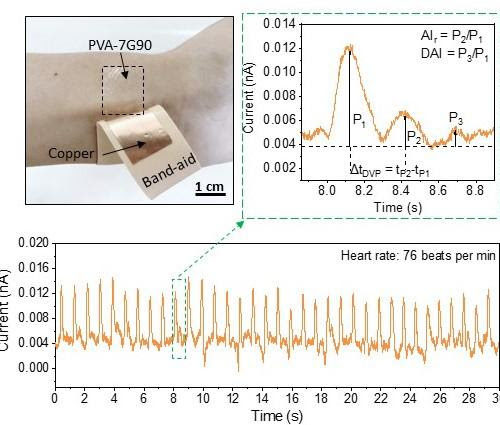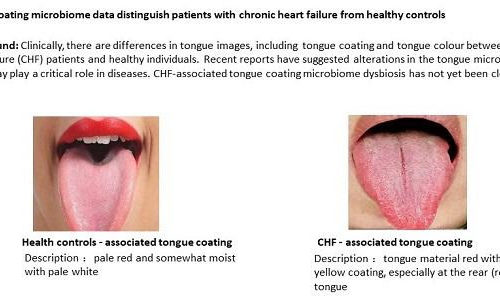PURDUE UNIVERSITY A TEAM FROM PURDUE UNIVERSITY DEVELOPED SELF-POWERED WEARABLE TRIBOELECTRIC NANOGENERATORS WITH POLYVINYL ALCOHOL-BASED CONTACT LAYERS FOR MONITORING CARDIOVASCULAR HEALTH.view more CREDIT: WENZHUO WU/PURDUE UNIVERSITY WEST LAFAYETTE, Ind. – An invention may turn one of the most widely used materials for biomedical applications into wearable devices to help monitor heart health. A team from...
Tag: <span>Heart health</span>
Chocolate is good for the heart
by European Society of Cardiology Eating chocolate at least once a week is linked with a reduced risk of heart disease, according to research published today in the European Journal of Preventive Cardiology, a journal of the European Society of Cardiology (ESC).1 “Our study suggests that chocolate helps keep the heart’s blood vessels healthy,” said study author...
‘Doc, Can I Get a Mask Exemption?’
Editor’s note: Find the latest COVID-19 news and guidance in Medscape’s Coronavirus Resource Center. As more jurisdictions mandate facial coverings in public, questions have arisen about whether it’s safe for everyone — including those with lung disease — to wear masks. Stories about people who claim to be unable to wear masks because of breathing...
Common childhood vaccine might prevent severe complications of COVID-19
New Orleans, LA – A paper published by Paul Fidel, Jr., PhD, Professor and Director of the Center of Excellence in Oral and Craniofacial Biology and Associate Dean for Research at LSU Health New Orleans School of Dentistry, and Mairi Noverr, PhD, Professor of Microbiology & Immunology at Tulane University School of Medicine in New...
Tongue microbes provide window to heart health
EUROPEAN SOCIETY OF CARDIOLOGY CLINICALLY, THERE ARE DIFFERENCES IN TONGUE IMAGES, INCLUDING TONGUE COATING AND TONGUE COLOUR BETWEEN CHRONIC HEART FAILURE (CHF) PATIENTS AND HEALTHY INDIVIDUALS. RECENT REPORTS HAVE SUGGESTED ALTERATIONS IN THE TONGUE… view more CREDIT: @EUROPEAN SOCIETY OF CARDIOLOGY 2020 Sophia Antipolis – 23 June 2020: Microorganisms on the tongue could help diagnose...
Enhancement of bitter taste sensor reduces salt intake and improves cardiovascular dysfunction
by Science China Press High salt intake is a well-known risk factor of hypertension and cardiovascular diseases. Reducing salt intake can significantly lower blood pressure and ameliorate target organ damage caused by hypertension. However, in the past three decades, several strategies have failed to decrease daily salt intake to an optimal level. Therefore, it is...
Heart health: Are women getting incorrect treatment?
Recent research suggests that ignoring sex-specific risk factors of heart disease has resulted in women having a higher risk of dying from heart failure than men. Differences between men and women may mean that the latter do not receive the right treatment for heart conditions. A review published in Nature Medicine reveals an alarming failure...
Brush your teeth to protect the heart
EUROPEAN SOCIETY OF CARDIOLOGYSHARE PRINT E-MAIL Sophia Antipolis, 2 December 2019: Brushing teeth frequently is linked with lower risks of atrial fibrillation and heart failure, according to a study published today in the European Journal of Preventive Cardiology, a journal of the European Society of Cardiology (ESC).1 Previous research suggests that poor oral hygiene leads to bacteria in...
For Your Heart, Eat Fish Or Take Pills? A Dose Of This Drug Equals 8 Salmon Servings
In November, an FDA panel recommended broader use of the prescription-strength fish oil drug Vascepa to prevent heart attack, stroke and other life-threatening health problems.Amarin/AP It’s long been known that eating fish, especially cold-water fish such as salmon that are rich in omega-3 fatty acids, is good for heart health. But, for the millions of Americans...
Researchers discover crucial ‘missing link’ between breathing and cardiovascular systems
by Macquarie University A team of researchers from Macquarie University have found a crucial missing link between the parts of the brain that control breathing and those that control the cardiovascular system. The discovery provides clues to how life-threatening conditions such as hypertension develop and may ultimately lead to more effective treatments. The study, conducted...




